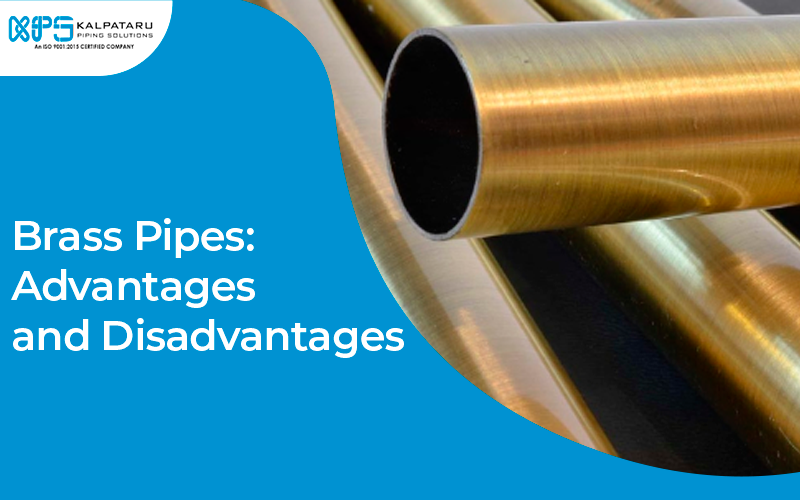
5 Advantages of Brass Pipes
Brass Pipes Durability:
Brass pipes offer an unparalleled advantage in terms of durability. Composed of an exceptionally strong metal, brass can withstand the ravages of corrosion, rust, and various environmental factors for extended periods without necessitating replacement or repair. Remarkably, it demands no specialized maintenance or care to retain its optimal condition. This characteristic renders it an exceptional choice for plumbing endeavors requiring longevity without the need for recurrent maintenance or repairs.
Brass Pipes Are Easy to Install:
Brass presents a visually pleasing aesthetic compared to alternative metals such as copper or steel. Its golden hue adds a touch of elegance and sophistication to any space or structure employing brass piping applications. Consequently, it emerges as the ideal selection for diverse settings, including residential homes, commercial edifices, and projects where aesthetics play a pivotal role.
Brass Pipes Easy to Customize:
Brass pipes are relatively easy to work with compared to other metals such as copper or steel. Their malleability allows for straightforward bending and shaping, making them ideal for customized piping applications that require specific forms and configurations.
Brass Pipes Are Fire Resistance:
Another noteworthy advantage of brass pipes is their resistance to fire. They exhibit slower ignition properties compared to alternative materials, providing an added safety feature. Furthermore, in the event of a fire, brass pipes do not contribute to the rapid spread of flames.
Brass Pipes Are Cost Effective:
Brass pipes provide a cost-effective solution in the long run. While they may come with a higher initial price tag due to their durability and visual appeal, their longevity and minimal maintenance requirements translate into cost savings over time.
5 Disadvantages of Brass Pipes
Brass Pipes Higher Initial Cost:
One notable disadvantage of brass pipes is their initial cost, which tends to be higher compared to materials like copper or steel. This price premium is attributed to the material’s durability and aesthetic appeal.
Brass Pipes Potential Lead Content:
Another concern with brass pipes is the potential presence of lead. Although the levels of lead in brass pipes are typically low, there is a risk of lead leaching into the water flowing through them, which can be harmful, especially to pregnant women and young children.
Brass Pipes Susceptibility to Corrosion:
Over time, brass pipes may corrode, leading to water contamination and leaks. Corrosion can result in water quality issues and potential damage to your property.
Brass Pipes May Be Noisy:
Brass pipes can generate noise as water flows through them, which may be disruptive and annoying. In certain situations, this noise can even disturb sleep if brass pipes are installed in a bedroom or nearby.
Brass Pipes May Require Special Maintenance:
Maintaining brass pipes may require extra effort to prevent corrosion and lead contamination. Periodic cleaning with specialized products may be necessary, and regular water testing might be recommended if brass pipes are part of your plumbing system.
In Conclusion:
In summary, brass pipes offer durability, aesthetics, and fire resistance, making them a solid choice for plumbing projects. However, their higher brass pipe price, potential lead content, susceptibility to corrosion, noise generation, and special maintenance requirements should be carefully considered. Ultimately, the decision to use brass pipes should align with your specific needs and budget, while also weighing the alternatives like copper or steel pipe systems.


























